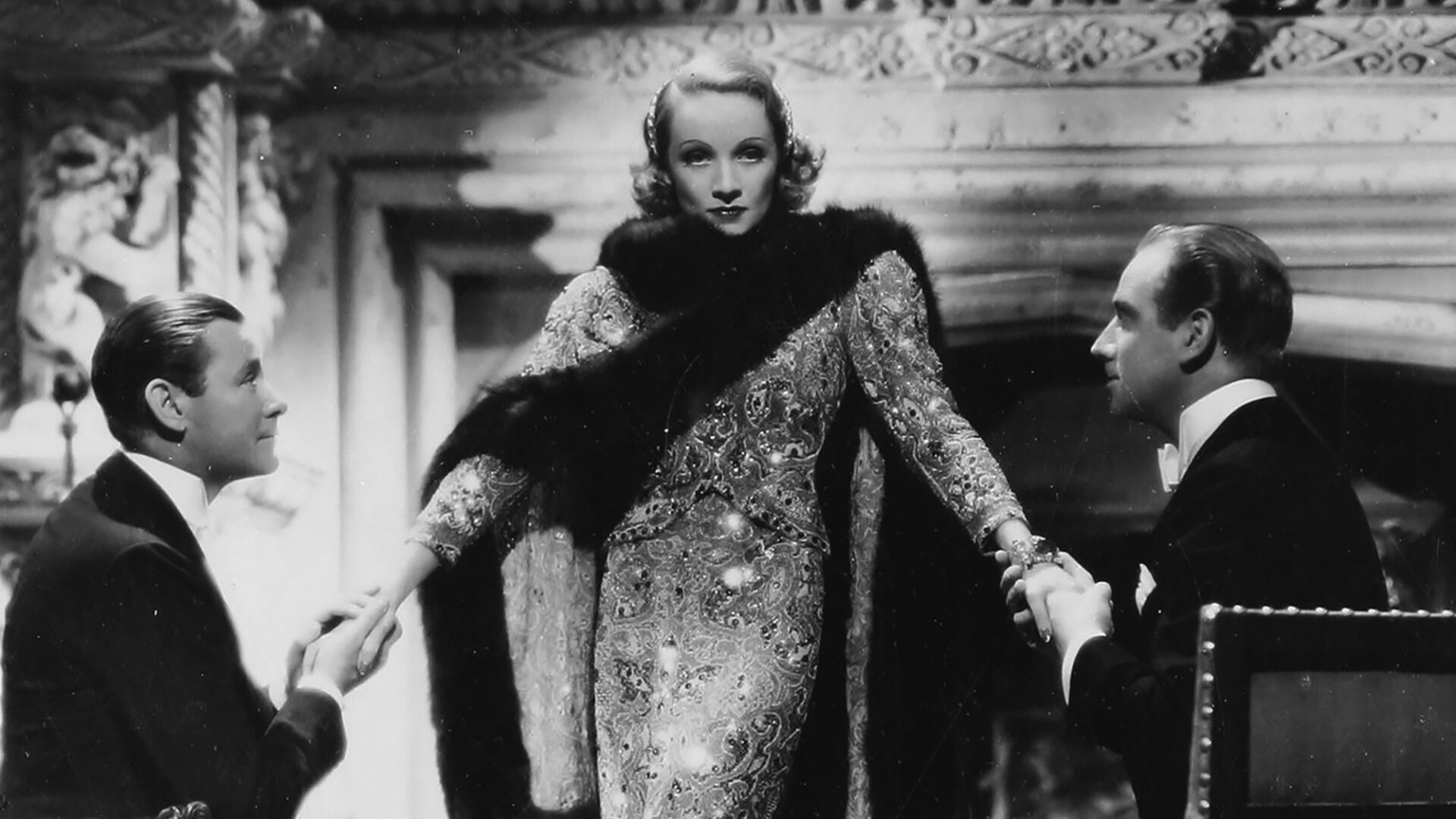October 12–20, 2024
Only Lubitsch Could Have Made It
“A giant. His talent and originality are stupefying.”
Orson Welles
“Ernst Lubitsch’s work has never needed reappraisal more than it does today,” David Bordwell wrote in 2018. Given that Lubitsch’s reputation has never left pantheon status for critics and audiences alike, this is a curious statement. It isn’t an exaggeration to say that Lubitsch helped invent the Hollywood studio comedy, that he was one of the most popular directors in the world during his lifetime, and that his place in film history remains assured. (Fifteen of his films earned votes in the most recent Sight and Sound “Greatest of All Time” poll.) What more could Bordwell have wanted?
The problem might begin with the tagline that introduces many a celebration: the unified theory of the so-called “Lubitsch touch,” a term that covers marketing materials and critical appreciations alike, despite the fact that nearly no one can agree on what it actually means. Charitably viewed, the term is capacious, allowing one to say that the innuendo of a closed door, the ambiguity of a smile, and the collision of a verbal and visual gag could become the height of sophistication under Lubitsch’s control.
While this might describe who Lubitsch was at a glance, it fails to cover not only the farther reaches of his art (he didn’t only work in sound-era comedies, for instance) but also the distilled power of his images. How, for example, can we trace a link between the way that objects and actions are constantly, emphatically redefined in both a silent-era comedy like Lady Windermere’s Fan and a screwball scenario like Cluny Brown, to cite two films at nearly opposite ends of the director’s career?
Writers as distinct as Gilles Deleuze and Andrew Sarris have isolated key elements of Lubitsch’s unique and innovative approach to cinema, and a behind-the-scenes dossier could very well spell out the historical or technological factors that enabled his command of form. (He was the rare Hollywood studio director with the freedom to choose his own projects, and to complete them with final cut.) Yet the task that Bordwell, an academic by reputation but a moviegoer at heart, knew lay ahead of any critical reevaluation was not so much a change to Lubitsch’s status, as a change to how much of his body of work can be properly reckoned with.
For this series, The Cinematheque has chosen to go slightly outside the canon of regularly screened Lubitsch films, paying special attention to works that attest to the full range of the director’s skill: his silent era in both Germany and America; his pre-Code musicals with Maurice Chevalier and Jeanette MacDonald; and his defining masterworks, including the underrated Angel, his best-loved film To Be or Not to Be, and his final completed feature Cluny Brown.
This series is timed to coincide with the finale of local filmmaker and lecturer Devan Scott’s comprehensive podcast series on Lubitsch, “How Would Lubitsch Do It?,” which draws on recent restorations and new scholarship to broaden public awareness of Lubitsch’s work. Scott will introduce the newly restored Lady Windermere’s Fan to kick off the series, and return to contextualize the unique production of arguably his greatest musical, One Hour with You.
“Lubitsch crystallized a form of peerlessly graceful impossibility that only the most single-minded artistic devotion could have achieved.”
Geoffrey O’Brien, New York Review of Books
“Every shot in a picture is the most important shot in a picture.”
Ernst Lubitsch
“I first saw Lubitsch playing the part of a clown in February 1911. Naturally, one had no idea of what this clown was to become … Like his great colleagues F.W. Murnau, Fritz Lang, and Arthur Robison, [he] was a man of ‘pure Cinema.’”
Alfred Hitchcock
Media
List of Programmed Films
| Date | Film Title | Director(s) | Year | Country |
|---|---|---|---|---|
| 2024-Oct | Lady Windermere’s Fan + I Don’t Want to Be a Man | Ernst Lubitsch | ||
| 2024-Oct | Angel | Ernst Lubitsch | 1937 | USA |
| 2024-Oct | One Hour with You | Ernst Lubitsch | 1932 | USA |
| 2024-Oct | Cluny Brown | Ernst Lubitsch | 1946 | USA |
| 2024-Oct | To Be or Not to Be | Ernst Lubitsch | 1942 | USA |
